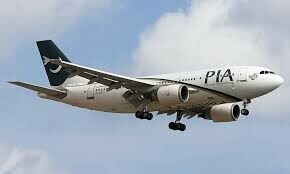BANGKOK: Thailand's junta chief on Friday ruled out elections for at least a year to allow time for political “reforms”, and defended the recent military coup in the face of rising international alarm.
In his first televised national address after announcing the army takeover last week, Prayut Chan-O-Cha said the new military regime planned to work towards returning the nation of 67 million people to democracy in around 15 months.
The general, who was given crucial royal endorsement on Monday, said a first phase of around three months would focus on “reconciliation” in the ferociously divided nation.
A cabinet and new draft constitution would then be put in place to enact reforms during a second year-long phase. Only after this could elections be held.
“Stage three is a general election under an absolute democratic system that is acceptable to all sides. Laws will be modernised so that we can have good and honest people to run the country,” he said.
Thailand's military seized power on May 22 -- the 19th actual or attempted putsch in its modern history -- and set about rounding up scores of political figures, academics and activists.
Authorities have abrogated the constitution, curtailed civil liberties under martial law and imposed a nightly curfew.
Prayut reiterated warnings against dissent in the face of near daily pockets of anti-coup protest.
He also said that restrictions on the press and social media were “necessary” because they had been used to stoke divisions in the past.
Thailand has seen months of debilitating protest against the government of former premier Yingluck Shinawatra, who was turfed from office by the courts for abuse of power just weeks before the remainder of the beleaguered leadership was ousted in the coup.
Demonstrators called for political “reforms” before an election in a bid to rid the country of the influence of the Shinawatra family, particularly the deeply divisive former premier Thaksin -- Yingluck's brother -- who was deposed in a 2006 coup.
That military intervention unleashed nearly a decade of often bloody political turmoil, with periodic rival mass protest on the streets.
Coup has brought 'happiness’
Prayut, whose timetable echoes suggestions from the anti-Shinawatra rallies, said the coup was necessary to restore stability to the kingdom.
“Thai people, like me, have probably not been happy for nine years, but since May 22, there is happiness,” said the general, who laid out broad economic plans for the country.
He said a curfew could be relaxed in certain areas in a nod to fears that it is having a further negative effect on the key tourism industry.
Thailand's economy shrank 0.6 percent year-on-year in January-March due to falling consumer confidence and a slump in tourism as protests put off visitors.
Prayut noted the international alarm over the coup, but said the country needed time to find a “righteous and legitimate” path for the country's democracy.
On Thursday, the United States reiterated a call for a swift return to democratic rule, with State Department spokeswoman Jen Psaki saying Washington would “use every political lever, economic lever where applicable to put the necessary pressure on”.
The European Union's foreign affairs head Catherine Ashton voiced “extreme concern” over the situation in the country and said only a clear plan for a return to democracy could allow its “continuous support”.
Around 300 people have now been held for periods of up to seven days.
Key political figures were released this week, including former premiers Yingluck Shinawatra and Abhisit Vejjajiva as well as protest leaders.
The regime has warned that those released face prosecution in military court if they continue their political activism.
The Paris-based International Federation for Human Rights (FIDH) on Friday said there had been a “swift and serious deterioration of the human rights situation” in Thailand since the coup, citing the detentions.
“The imposition of martial law and the suspension of the constitution do not authorise Thailand's military junta to brazenly violate rights guaranteed under international law,” said FIDH President Karim Lahidji.
Soldiers flooded a major Bangkok intersection on Friday in a show of strength against small-scale but vehement anti-coup protest.
Further rallies are expected over the weekend.












































Dear visitor, the comments section is undergoing an overhaul and will return soon.